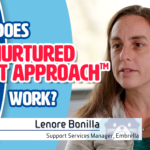You’re at work when you receive an urgent phone call. Your foster child has had an altercation with one of his classmates and is at risk of being expelled. On the way to his school, you contact the Division of Child Protection and Permanency (DCP&P) caseworker immediately. After picking up your foster child and taking him home, you still haven’t heard from the caseworker. On top of the possible suspension, you fear your child in care may be in danger. What do you do when you reach out and don’t get a timely response? You need an answer now.
A Guide to Working with Your DCP&P Caseworker: Breathe
When you have a pressing issue with your foster child and are not getting the response you need at the time, it’s easy to become frustrated, angry and scared. While it’s understandable, letting frustration overtake you can affect your relationship with your child in care’s caseworker and, ultimately, your foster child. As his advocate, you have to maintain a healthy relationship that will benefit everyone.
Your child in care isn’t the only one the caseworker is working with. He is often overloaded with children who need help, so it’s your job to make sure your child in care’s needs stay on his mind. But what do you do if you can’t get a hold of him?
A Guide to Working with Your DCP&P Caseworker: Understand the Chain of Command – Emergency Vs. Non-Emergency
When you can’t get a hold of your child in care’s caseworker, the most appropriate way to address any issues is to follow the proper chain of command. There are different types of caseworkers. As a foster parent in New Jersey, your foster child’s caseworker is known as a Family Service Specialist (FSS).
Here’s an infographic that explains the chain of command.
If an emergency occurs, and you need the ambulance or police to get involved, dial 911. After you have done that, call your foster child’s caseworker (FSS) immediately. If he isn’t available, leave a message to inform him of the situation. If the emergency occurs after hours, in addition to contacting the child in care’s caseworker (FSS), call the State Central Registry (SCR) at 877.652.2873 to file a report.
For non-emergencies, again, contact the caseworker (FSS). If you don’t receive a response within 48 hours, the next person to contact is the Supervising Family Service Specialist (SFSS). All of your contacts, with the exception of the Area Director, are located in your Local Office (LO). Follow the appropriate chain of command, as noted in the infographic, if either of these caseworkers are unavailable.
Before you make that call, though, it’s important that you document everything.
A Guide to Working with Your DCP&P Caseworker: Document Everything
This cannot be stressed enough. Document every interaction. If you have a conversation on the phone, write the day, time and everything that is discussed in a notebook. Keep a folder where you can easily file and access information. If you email the caseworker (FSS), save the correspondence so it can be found for future reference. When you meet in person, write down the details of the meeting as well. Having a record will help you in times of need. If you have to follow the chain of command, documentation will better prepare you to advocate for the child in your care. In this case, records such as an official report of the altercation at your foster child’s school will be very helpful.
When you receive a new child into your home, you also get what is known as the Placement Kit. It is essential that you fill it out in detail including the contact information for the caseworker, supervisor and Local Office, so you can refer to it as often as needed. Depending on the child, these individuals may change. For example, if you have two different children in your care, you may have two different caseworkers.
A Guide to Working with Your DCP&P Caseworker: Keep Advocating and Stay Informed
The Department of Children and Families (DCF) in New Jersey has created a Resource Family Handbook that provides further information for resource parents to navigate through the child welfare system effectively.
Your foster child’s caseworker has a big load and responsibility, so that means it is up to you to advocate for your child in care. This isn’t an easy task, and frustration comes with the territory, but don’t give up on fighting the good fight and doing what’s right.
Working successfully with your foster child’s caseworker and the entire Resource Family Support Unit will ensure the best services for you and your child in care.
Despite early frustration and concerns, you calmed down, followed the chain of command and documented everything. Because you persevered, your child in care was allowed to return to school. You can rest easy knowing you did your best for him.



1 thought on “A Guide to Working with Your DCP&P Caseworker”